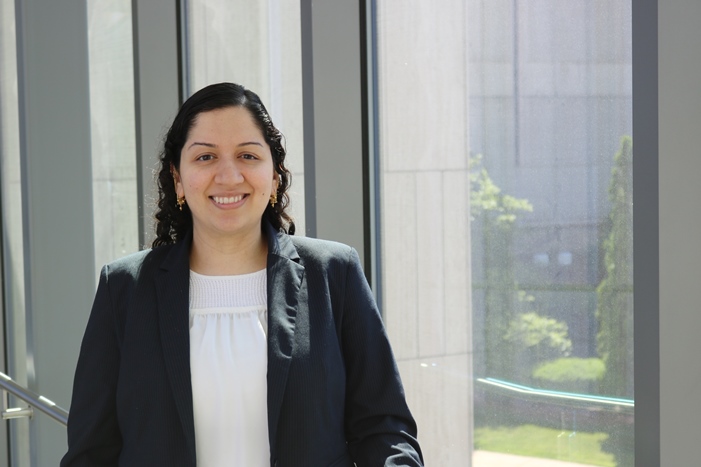
A new two-year project to educate and raise awareness of epilepsy and epilepsy management in Detroit's African-American population will launch soon thanks to a $95,000 award from the DMC Foundation to Wayne State University School of Medicine and project principal investigator Deepti Zutshi, M.D.
Dr. Zutshi, an assistant professor of Neurology, will use the funding to provide patient and caregiver support through a multi-disciplinary team approach. The clinicians involved with the project are members of the School of Medicine faculty.
"I believe our outreach is in conjunction with the School of Medicine's dedication to urban clinical excellence. Through our endeavors, we hope to see an improvement in patient care and their caregivers by providing them with the tools and education to better understand their disease," she said. "Our pilot program could become a model program for other institutions to adopt."
The local African-American community, Children's Hospital of Michigan Epilepsy Center and the Epilepsy Foundation of Michigan also will be involved. The DMC Foundation, a supporting organization of the Community Foundation for Southeast Michigan, promotes the well-being of the metropolitan Detroit community through support of health and medical research, education and community benefit activities.
The award will fund live interactive education programs in Detroit; a web-based interactive learning page and smart phone app with educational tools on epilepsy types, seizure signs, medication side effects, a programmable notification reminder to take medications and an interactive seizure calendar to document seizures; and a quarterly newsletter to engage the community in scientific endeavors to build bridges with the community and caregivers.
With a 39 percent poverty rate, Detroit's population faces significant health care disparities. The population is burdened with a higher rate of chronic conditions, including epilepsy, Dr. Zutshi said.
"If a patient's seizures can be controlled, there is a reduction not only in health risks associated with uncontrolled seizures, but reinstatement of driving privileges and improvement of employability, which can make a significant impact on socioeconomic and psychological well-being," she said. "Therefore, any strategy that leads to diagnosis and treatment of epilepsy in our urban population is likely to have a favorable effect for the patient, caregiver and the community as a whole."
Epilepsy is a disease characterized by an enduring predisposition to generate epileptic seizures and by the neurobiological, cognitive, psychological and social consequences of the condition. Approximately one in 26 will develop epilepsy at some point, with higher incidence rates in the young and elderly.
"Since epilepsy is a chronic condition, proper understanding of the conditions and its management is crucial for successful treatment and outcome. About 30 percent to 40 percent of people with epilepsy live with ongoing seizures, as current therapy may not work," Dr. Zutshi added.
African-Americans in particular face a unique set of challenges, she added, including being diagnosed and having follow-up care and treatment in the emergency room rather than with a neurologist or epilepsy specialist, and being more likely to experience status epilepticus - a seizure lasting five minutes or more without stopping - than Caucasians.
African-Americans also are at higher risk for sudden unexpected death in epilepsy than other races and are more likely to develop epilepsy due to traumatic brain injuries, stroke and cognitive changes leading to dementias.
"They are more likely to face social stigma and are less likely to be employed and return to driving. Caregivers of these patients are also affected by the socioeconomic burden of caring for patients with epilepsy," she said. "African-Americans are less likely to be referred to a tertiary care epilepsy center for evaluation of possible epilepsy surgery than their Caucasian counterparts. These patients are more likely to be treated with anti-seizure medications that have higher rates of adverse side effects that may reduce their medication adherence rate and worsen their seizure control. African-Americans are less likely to be recruited into clinical trials."